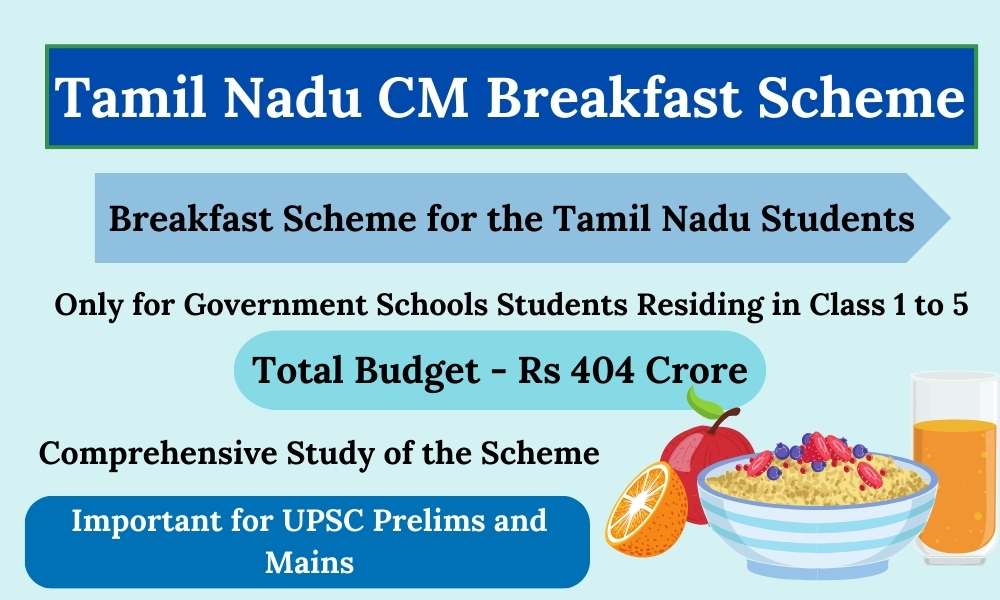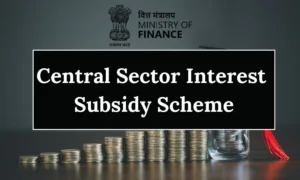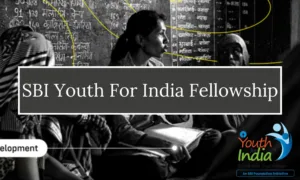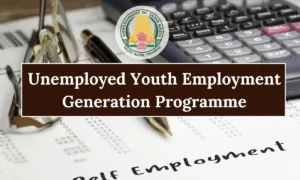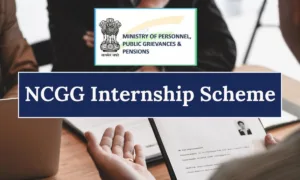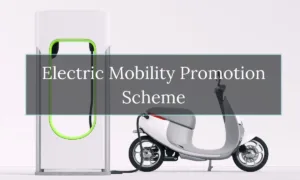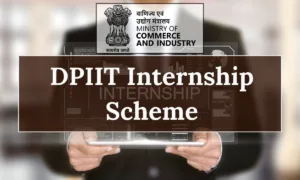Morning breakfast scheme in Tamilnadu UPSC, Free breakfast scheme UPSC, Breakfast scheme in TamilNadu in Tamil, Breakfast scheme in TamilNadu menu, Morning breakfast scheme in Tamilnadu tnpsc, Tamil Nadu Chief Minister breakfast scheme, Tamil Nadu Breakfast scheme, Morning breakfast scheme in Tamilnadu launch Date,
The CM Breakfast Scheme initiated by the Chief Minister of Tamil Nadu is a nutrition-focused meal program designed for primary school students attending government-run schools within the state. The breakfast program was officially launched on September 15, 2022, initially on a limited scale. Subsequently, it was expanded in the following year to include primary schools across the entire state of Tamil Nadu. As of now, the scheme has been extended to encompass over 31,008 government schools across Tamil Nadu. In this article, we are going to talk about the scheme in detail. I am certain that by the end of the article, you will have a comprehensive understanding of the article.
What is the Tamil Nadu CM Breakfast Scheme?
The Chief Minister’s Breakfast Scheme is a government-supported initiative that offers complimentary breakfasts to students attending primary government schools in Tamil Nadu. The primary goal of this program is to enhance the nutritional well-being of children and decrease the rate of school dropouts.
This program offers complimentary breakfasts to a significant number of over 15.75 Lakh children. The meals provided are carefully curated to ensure they are nutritionally balanced and consist of a diverse range of items, including upma, khichidi, Pongal, and Kesari. There are plans for the scheme to undergo expansion in order to encompass a greater number of schools in the foreseeable future.
| Tamil Nadu CM Breakfast Scheme 2023 Key Highlights | |
| Tamil Nadu CM Breakfast Scheme Launch Date | September 15, 2022 |
| Tamil Nadu CM Breakfast Scheme Official Website | Click Here |
| Tamil Nadu CM Breakfast Scheme Objective | To enhance the nutritional well-being of children and decrease the rate of school dropouts. |
| Tamil Nadu CM Breakfast Scheme Budget | Rs 404 crore (Updated) |
| Tamil Nadu CM Breakfast Scheme Beneficiaries | Students of ( Class 1 to 5) – Government Schools |
| Tamil Nadu CM Breakfast Scheme No of Beneficiaries | 15.75 lakh students |
| Tamil Nadu CM Breakfast Scheme Number of Schools | 31,008 |
| Tamil Nadu CM Breakfast Scheme New Expansion Date | August 25,2023 |
| Tamil Nadu CM Breakfast Scheme Helpline Number | Click Here |
Tamil Nadu CM Breakfast Scheme Objectives
The primary aim of this initiative is to foster an understanding of self-confidence among schoolchildren. By incorporating messages that emphasize the importance of mental and physical well-being, the program seeks to not only enlighten students but also to raise awareness within society at large.
The core objective of this program is to ensure that schoolchildren have access to a nourishing breakfast. This breakfast is intended not only to kickstart their day on a positive note but also to have a lasting impact on their overall health.
Update as of August 24th: Extension of CM Breakfast Scheme to All Government Schools
The Tamil Nadu Chief Minister breakfast scheme initially launched as a pilot project in 1,545 schools, demonstrated remarkable success by increasing student attendance in 90% of these schools within an 11-month period. Now, the scheme is poised to benefit all primary school students enrolled in government schools across Tamil Nadu, starting on August 25, 2023, with an estimated expenditure of Rs 404 crore.
Chief Minister M. K. Stalin will personally inaugurate the program at a public middle school in Thirukkuvalai, a district within the Cauvery Delta region. Thirukkuvalai holds special significance as it is the birthplace of the late Chief Minister M. Karunanidhi, M. K. Stalin’s father.
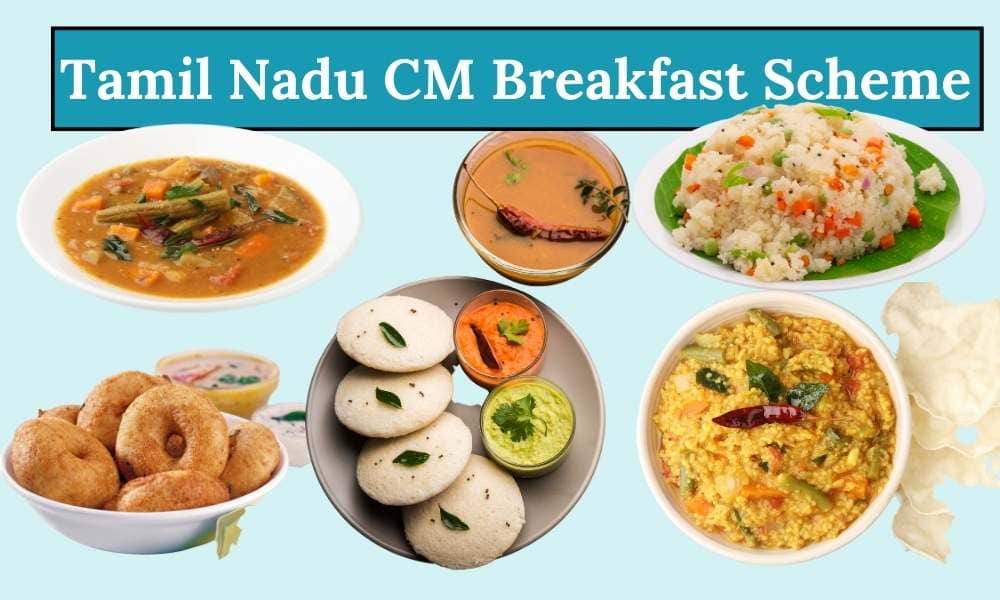
The ambitious program, which has garnered widespread acclaim, was first introduced on September 15, 2022, in 1,545 schools, benefiting a total of 1.14 lakh students. Now, the scheme is set to expand its reach to include 15.75 lakh students in grades one through five across 31,008 government schools throughout the state.
For this substantial expansion of the breakfast scheme, the government has allocated a budget of Rs 404 crore. Chief Minister Stalin has called upon Members of Parliament (MPs) and Members of Legislative Assembly (MLAs) from various political parties to actively participate in launching this ambitious initiative in their respective districts.
Tamil Nadu CM Breakfast Scheme Benefits
The advantages of the Tamil Nadu Chief Minister Breakfast Scheme are provided below.
1. Enhanced Nutritional Wellbeing: The program offers nutritious meals, contributing to the betterment of children’s nutritional health.
2. Lowered School Dropout Rates: By providing a nourishing breakfast, the scheme enhances students’ concentration and academic performance, potentially leading to a decrease in the dropout rate.
3. Boosted School Attendance: The scheme serves as an incentive for children to attend school regularly, resulting in increased attendance rates.
4. Enhanced Overall Health: The wholesome food provided by the program plays a crucial role in improving the overall health of participating children.
CM Breakfast Scheme in Tamil Nadu Menu
Within Tamil Nadu, there are two distinct meal programs in place for students attending government schools. The first is the longstanding midday meal program, established in 1956, which offers lunch to students. The second is the recently introduced breakfast scheme, which caters to students in Classes I to V, thereby complementing the midday meal program that serves students from Classes I to X in government and government-aided schools.

The meals provided through the Chief Minister’s Breakfast Scheme are rich in nutrition, encompassing a diverse range of items such as upma, kichadi, Pongal, and Kesari. These dishes are notable for their substantial protein, carbohydrate, and vitamin content, and they are additionally known for their ease of digestion.
| Day | Menu Type | Details |
| Monday | Uppama | Rava Uppama + Vegetable Sambhar / Vermicelli Uppama + Vegetable Sambhar / Rice Uppama + Vegetable Sambhar / Wheat Rava Uppama + Vegetable Sambhar |
| Tuesday | Kitchadi | Rava Vegetable Kitchadi / Vermicelli Vegetable Kitchadi / Sorghum Vegetable Kitchadi / Wheat Rava Vegetable Kitchadi |
| Wednesday | Pongal | Rava Pongal + Vegetable Sambhar / Pongal + Vegetable Sambhar |
| Thursday | Uppama | Vermicelli Uppama + Vegetable Sambhar / Rice Uppama + Vegetable Sambhar / Rava Uppama + Vegetable Sambhar / Wheat Rava Uppama + Vegetable Sambhar |
| Friday | Sweet | Sweet Pongal / Rava Kesari / Vermicelli Kesari |
The amount of raw materials allocated per child per day will be 50 grams. Additionally, local millet-based breakfast options will be incorporated into the menu for a minimum of two days each week. This arrangement is designed to provide approximately 293.40 calories of energy, 9.85 grams of protein, 5.91 grams of fat, 1.64 grams of iron, and 20.41 grams of calcium per child, ensuring their nutritional needs are met.
Tamil Nadu CM Breakfast Scheme Important Points
Incorporating supplementary information about the Chief Minister’s Breakfast Scheme:
1. Government Funding: The program receives financial support from the Tamil Nadu government.
2. Centralized Meal Preparation: The meals are prepared at centralized kitchen facilities and subsequently distributed to the respective schools.
3. Breakfast Timing: Children are provided with these meals at the commencement of the school day.
4. Oversight and Monitoring: Oversight of the scheme is conducted jointly by the Tamil Nadu government and nonprofit organizations.
Tamil Nadu CM Breakfast Scheme Eligibility Criteria
To qualify for the benefits of the Tamil Nadu CM Breakfast Scheme, students must meet the following criteria:
1. Residency: Students must be residents of Tamil Nadu state.
2. Grade Level: Students should be enrolled in classes ranging from 1st to 5th.
3. School Type: Eligible students must be enrolled in government schools.
1000 Rs Scheme for the Ladies in Tamil Nadu | Kalaignar Magalir Urimai Thittam Scheme 2023
Tamil Nadu CM Breakfast Scheme Challenges
The Chief Minister’s Breakfast Scheme is indeed a well-intentioned initiative, yet several challenges must be tackled to ensure its successful execution. These challenges encompass:
1. Cost Management:
The scheme’s annual cost to the Tamil Nadu government is expected to reach billions of rupees, necessitating careful and efficient financial management.
2. Logistical Complexities:
Implementing the scheme demands a complex logistical operation to ensure timely and pristine meal delivery to schools, with rural areas facing potential infrastructure limitations.
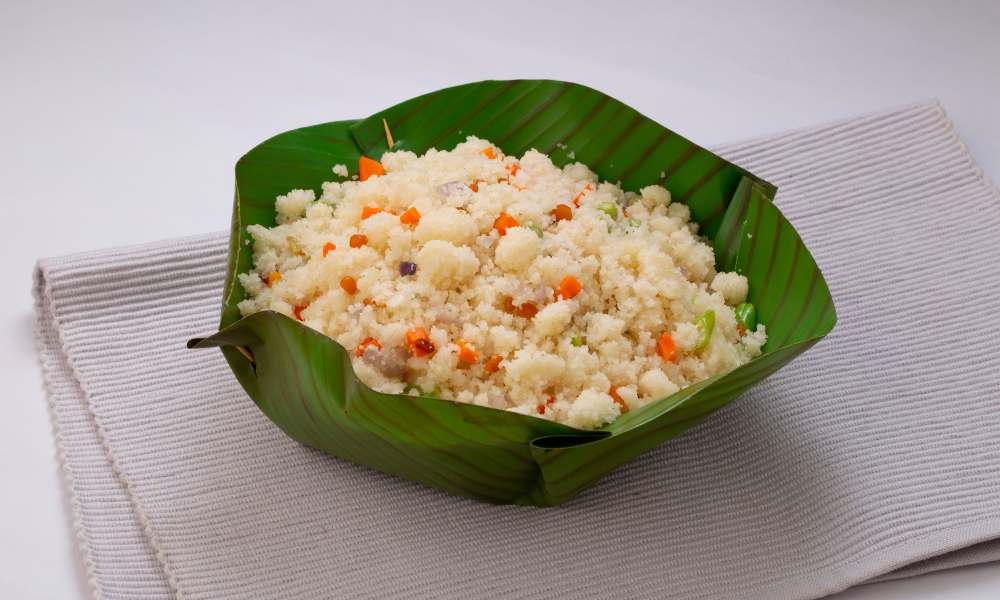
3. Nutritional Balance:
Maintaining the nutritional quality and balance of meals served under the program necessitates meticulous planning and collaboration with nutrition experts.
4. Cultural Sensitivity:
Sensitivity to cultural and religious dietary restrictions is crucial, as some children may have specific dietary needs based on their cultural or religious backgrounds.
5. Monitoring and Evaluation:
Regular monitoring and evaluation are essential to gauge the scheme’s effectiveness, including tracking metrics such as children’s nutritional well-being and dropout rates.
Furthermore, there may be context-specific challenges in certain areas, such as shortages of qualified personnel like cooks or difficulties in procuring and transporting food to schools. Addressing these challenges will be vital for the successful implementation of the scheme, tailoring solutions to the unique circumstances of each region.
Tamil Nadu CM Breakfast Scheme: A Blueprint for Launching Breakfast Programs in Other States
To implement a program similar to the Chief Minister’s Breakfast Scheme in other states, a successful approach can be outlined through the following steps:
1. Identify the Target Beneficiaries:
Begin by identifying the specific target population for the scheme. This could encompass all primary school children in government schools or a defined subset, such as those belonging to economically disadvantaged families.
2. Secure Adequate Funding:
Ensure that the program receives the necessary financial support from the government. This funding should cover food procurement costs, as well as expenses associated with meal preparation and distribution.
3. Establish Strategic Partnerships:
Collaborate with nonprofit organizations and other relevant stakeholders to facilitate the scheme’s implementation. These partners can assist in providing food resources, kitchen facilities, and volunteer support.
4. Develop a Balanced Menu:
Create a well-rounded menu that prioritizes nutrition and aligns with local cultural preferences. The menu should feature foods that are both nutritious and culturally appropriate.
5. Provide Training for Staff and Volunteers:
Conduct training programs for the cooks and volunteers involved in meal preparation and service. Ensure they are well-equipped with the necessary skills and knowledge.
6. Implement a Robust Monitoring and Evaluation System:
Establish a systematic process for continuous monitoring and evaluation of the program’s performance. Regular assessments should be conducted to gauge its effectiveness in achieving its objectives.
By following these steps and tailoring the program to the specific needs and circumstances of each state, similar successful breakfast schemes can be implemented to positively impact the lives of school children.
Tamil Nadu CM Breakfast Scheme Conclusion
With a budget allocation of Rs 12.75 per child, the breakfast scheme goes beyond solely meeting the nutritional requirements of school-enrolled children. It acts as a deterrent to absenteeism, strives to enhance both enrollment and retention rates, and has been initiated with the objective of achieving educational outcomes akin to the highly praised midday meal scheme.
The Chief Minister’s Breakfast Scheme stands as a noteworthy success, bringing about positive transformations in the lives of children residing in Tamil Nadu. This program, which offers complimentary breakfast to primary school students in government schools, has not only enhanced the nutritional well-being of children but has also contributed to a decline in school dropout rates. The steps detailed previously can serve as a blueprint for other states aspiring to implement a similar initiative.
Also Read:
